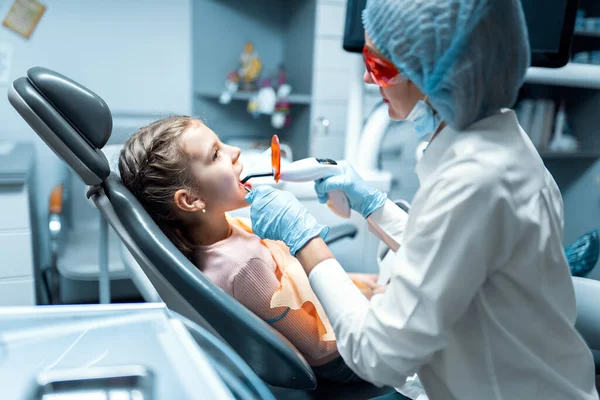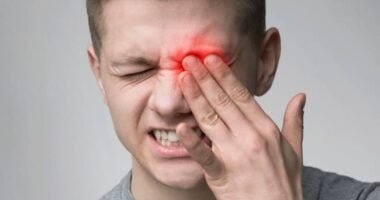Is Nitrous Oxide Safe for Children? What Parents Should Know about the Side Effects, Nitrous oxide, commonly referred to as laughing gas, is widely used in pediatric dentistry to help children relax during dental procedures. While it is generally considered safe, parents need to understand the potential side effects associated with its use. This article will explore both short-term and long-term side effects of nitrous oxide in children, highlight its safety as a dental procedure option, and encourage parents to schedule an appointment with Pediatric Dentistry & Orthodontics for their child’s dental needs.

Short-Term Nitrous Oxide Side Effects in Kids
Nitrous oxide is known for its rapid onset of effects, which can provide a sense of calm and euphoria. However, some children may experience short-term side effects during or after the administration of nitrous oxide. Understanding these effects can help parents prepare for their child’s dental visit.
Common Short-Term Side Effects
- Nausea and Vomiting: One of the more common short-term side effects is nausea. According to a study published by the National Institutes of Health (NIH), approximately 5-10% of children may experience nausea or vomiting after inhaling nitrous oxide, particularly if they have not eaten lightly beforehand.
- Dizziness and Disorientation: Some children may feel dizzy or slightly disoriented during the procedure. This sensation is typically mild and resolves quickly once the nitrous oxide is discontinued.
- Headaches: Post-procedure headaches can occur in some children. These headaches are usually mild and can be managed with rest and hydration.
- Irritability: As the effects of nitrous oxide wears off, children may feel irritable or fussy. This is often temporary and can be alleviated with comfort and reassurance from parents.
While these side effects can be concerning, research indicates that the majority of children tolerate nitrous oxide well, and serious complications are rare. The American Dental Association (ADA) states that nitrous oxide is one of the safest sedatives used in dentistry.
Also Read | Teeth Cleaning Before and After Pictures: Benefits and Side Effects
Long-Term Nitrous Oxide Side Effects in Children
The long-term effects of nitrous oxide use in children have been a topic of ongoing research. Current evidence suggests that when administered correctly, nitrous oxide does not lead to significant long-term side effects. However, there are some considerations that parents should be aware of.
Potential Long-Term Effects
- Vitamin B12 Deficiency: Prolonged or excessive exposure to nitrous oxide can lead to vitamin B12 deficiency. A study published in the Journal of Oral and Maxillofacial Anesthesia highlighted that nitrous oxide inactivates vitamin B12, which is crucial for nerve function. While this is more of a concern for individuals undergoing multiple procedures requiring sedation, it is worth noting for children who may need several dental treatments.
- Neurological Effects: Although large studies have not shown major adverse effects, ongoing research is necessary to fully understand any potential long-term impacts on the developing brain. A comprehensive review in Anesthesia Progress noted that while nitrous oxide is generally safe, there is a need for further studies to assess any long-term cognitive effects in children.
Overall, nitrous oxide is deemed safe for children, and no significant long-term side effects have been reported in clinical settings when used appropriately.
A Safe Dental Procedure Option
Nitrous oxide is often recommended for children who experience anxiety or fear about dental visits. It is a non-invasive option that allows children to remain awake and responsive during procedures, making it an effective choice for managing dental anxiety.
Benefits of Nitrous Oxide in Pediatric Dentistry
- Rapid Onset and Recovery: Nitrous oxide acts quickly, providing immediate relief from anxiety. The effects wear off rapidly once the gas is discontinued, allowing children to return to their normal activities shortly after the procedure.
- Control Over Sedation: The dosage of nitrous oxide can be easily adjusted by the dentist, ensuring that the child receives the appropriate level of sedation for their needs.
- Increased Comfort: Many children report feeling relaxed and comfortable during procedures when nitrous oxide is used. This can lead to a more positive dental experience, reducing the likelihood of future dental anxiety.
According to the American Academy of Pediatric Dentistry, nitrous oxide is a safe and effective sedation method for children, helping to reduce anxiety and manage pain during dental procedures.
Schedule an Appointment With Sprout Pediatric Dentistry & Orthodontics
If your child requires dental treatment and you are considering nitrous oxide as a sedation option, it’s essential to consult with a qualified pediatric dentist. Here are some indicators that may suggest the need for an appointment involving nitrous oxide sedation.
Signs Your Child May Need Nitrous Oxide
- High Anxiety Levels: If your child exhibits significant fear or anxiety about dental visits, nitrous oxide may help ease their nerves and facilitate a smoother experience.
- Anticipation of a Lengthy Procedure: For more complex dental work, such as fillings or extractions, nitrous oxide can help keep your child calm and still during the procedure.
- Difficulty in Maintaining Stillness: Children who have trouble remaining still during dental procedures may benefit from sedation to ensure safety and accuracy during treatment.
Consultation with Professionals
Before scheduling an appointment, it is advisable to discuss sedation options with your pediatric dentist. They can assess your child’s medical history and determine whether nitrous oxide is appropriate for their specific needs. This conversation is crucial for ensuring the safety and comfort of your child during dental procedures.
Conclusion
Understanding the side effects of nitrous oxide and its benefits can empower parents to make informed decisions about their child’s dental care. With the right precautions and professional guidance, laughing gas can be a safe and effective option for managing anxiety during dental visits.
Also Read | Dental Deep Cleaning Alternatives: Everything You Need to Know









